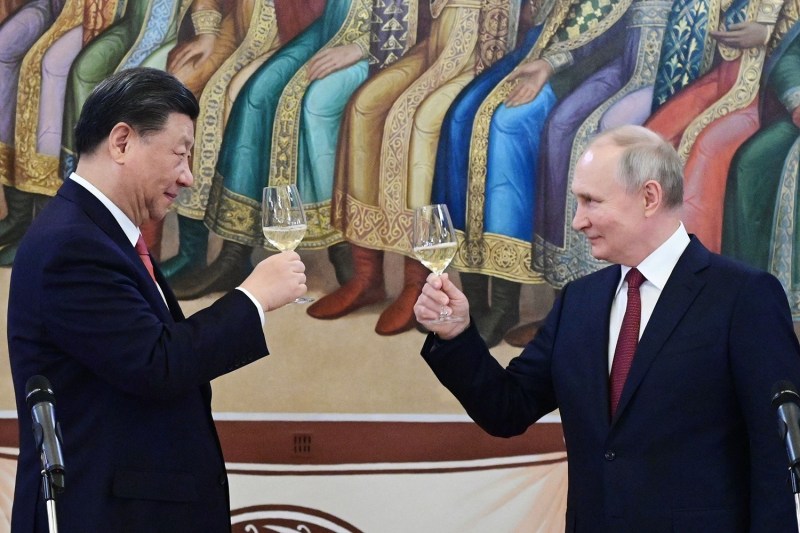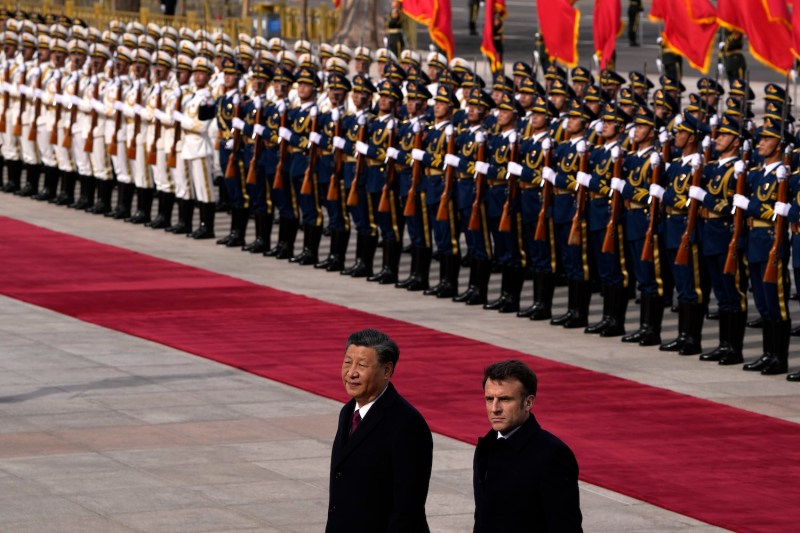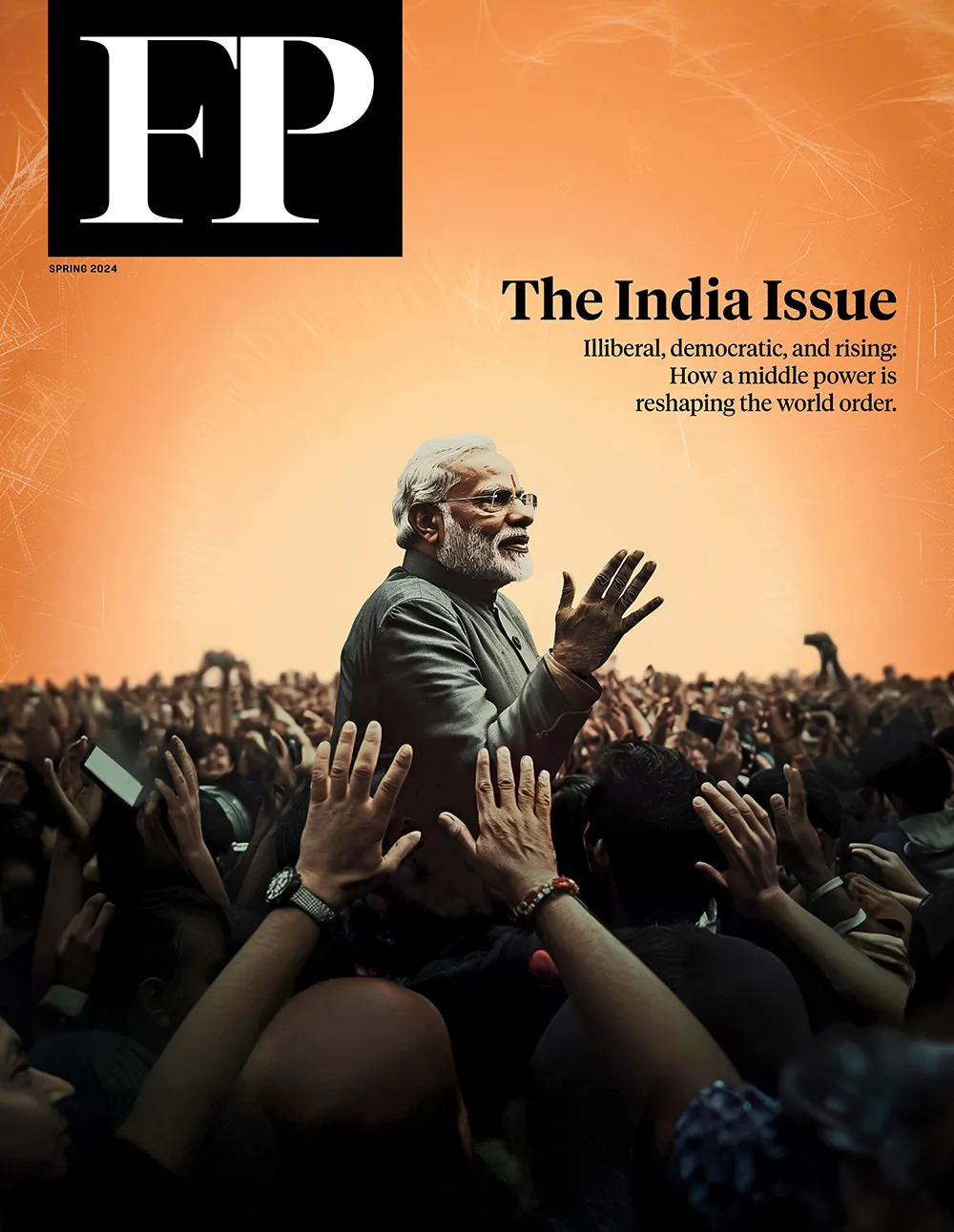Is Netanyahu Cornered?
Israel’s longest-serving prime minister faces the test of his political life.
There’s an old saying in Israeli politics that a politician can be dead—or dead and buried. Whether a beleaguered Benjamin Netanyahu belongs to either of these unhappy groups is hard to say, but veteran Israeli political analysts are clear that he now faces the test of his life. Netanyahu must deal with a converging web of controversies and pressures, while also dealing with an increasingly unhappy Israeli public. These include rising frustration from the families of hostages taken on Oct. 7 by Hamas; dissension in the war cabinet; a rebellious right wing; the return of mobilized reservists (traditionally an anti-Netanyahu constituency); and growing strains with the United States—not to mention his ongoing trial for bribery, fraud, and breach of trust in the Jerusalem District Court.
There’s an old saying in Israeli politics that a politician can be dead—or dead and buried. Whether a beleaguered Benjamin Netanyahu belongs to either of these unhappy groups is hard to say, but veteran Israeli political analysts are clear that he now faces the test of his life. Netanyahu must deal with a converging web of controversies and pressures, while also dealing with an increasingly unhappy Israeli public. These include rising frustration from the families of hostages taken on Oct. 7 by Hamas; dissension in the war cabinet; a rebellious right wing; the return of mobilized reservists (traditionally an anti-Netanyahu constituency); and growing strains with the United States—not to mention his ongoing trial for bribery, fraud, and breach of trust in the Jerusalem District Court.
Having presided over the greatest intelligence failure and terror attack in Israel’s history and the bloodiest day for Jews since the Holocaust, Netanyahu may well be entering the twilight of his career. One way or another, it is unlikely that the current Netanyahu-led government will run its full term to October 2026. The average length of an Israeli government since independence is 1.8 years. And Israel, whose politics are fractious during normal times, has just weathered a stunningly abnormal—even traumatic—year, with Netanyahu leading efforts to weaken Israel’s judiciary and the Oct. 7 terror surge. Both traumas, his critics charge, were a direct result of Netanyahu’s failed policies.
That is not to say the political demise of Israel’s longest-governing prime minister will be quick. Right now, there are no direct mechanisms to remove him from power. Indeed, Netanyahu has a few more levers to pull, including from a most unlikely quarter: a U.S. president who is aiming to deliver an Israel-Saudi normalization accord before the American elections in November, if Netanyahu plays along.
In January, the Labor Party put forward a no-confidence motion for the government’s failure to redeem the hostages. The vote had no chance, but it signaled the beginning of the return of domestic politics, suspended in the interest of national unity since Oct. 7. Yair Lapid, the head of oppositional party Yesh Atid, talked publicly about holding early elections while former Israel Defense Forces (IDF) Chief of the General Staff Gadi Eisenkot, a nonvoting member of the war cabinet, publicly chastised the prime minister for his refusal to prioritize the release of hostages and lack of crisis leadership.
The public is by no means giving up on the war against Hamas. But the twin goals of destroying Hamas’s military organization and freeing the 136 hostages still held are now increasingly at odds with one another. Hamas used time—and its tunnel maze—to frustrate the IDF’s operations; a deal to free the hostages may be looming. That will be a fraught decision point for the prime minister as far-right members of his coalition insist the war must continue while centrists and the center-left push toward a hostage deal involving an extended pause in the fighting.
In this respect, Netanyahu could finally be cornered. As Anshel Pfeffer, perhaps the most astute observer of Netanyahu, has argued, what the prime minister fears the most isn’t the Americans or pressure from the hostages’ families but “losing the majority in the Knesset that took him four years and five election campaigns, including 18 frustrating months out of office, to secure.”
If a hostage deal that necessitates a lengthy cease-fire emerges, far-right Knesset members, notably National Security Minister Itamar Ben-Gvir or Finance Minister Bezalel Smotrich (especially the former, whose party’s poll numbers have risen), may seek to cement their status as true believers of a maximalist war approach by bolting the coalition.
But if Netanyahu bows to pressure from his right, the looming threat of resignations by Benny Gantz and Eisenkot from the war cabinet remains a distinct possibility. Gantz and Eisenkot, members of the increasingly popular National Unity political alliance, have ramped up their criticism of Netanyahu in recent weeks. Eisenkot said Netanyahu bears “sharp and clear” responsibility for the Oct. 7 attacks. If they do resign, Gantz and Eisenkot could fuel a new wave of protests against Netanyahu and spark other government officials, perhaps even members of Netanyahu’s own party, to step aside.
Netanyahu’s political acumen—and sheer will—to stay in power should never be underestimated. But his staying power these days is also a result of the realities of Israel’s political process.
To send him packing, there are several pathways available for the Israeli opposition—all of them problematic. First, there is the vote of constructive no confidence. Modified in 2014 to ensure an alternative government must be proposed, any constructive vote of no confidence requires at least 61 Knesset member votes (out of 120) to enact. Alternatively, the Knesset can pass a bill supported by a simple majority to dissolve itself and move to elections. Right now, there seems to be no appetite in the current Knesset to send the country into yet another election in wartime, much less the votes needed for an alternative governing coalition.
The second mechanism to remove Netanyahu stems from the belief that resignations by Gantz and Eisenkot from the war cabinet, coupled with widespread protests, will serve as the catalysts for a handful of Likud MKs to abandon Netanyahu. But there’s no guarantee that Gantz and Eisenkot will voluntarily resign from their influential posts anytime soon. To them, overseeing Netanyahu and Defense Minister Yoav Gallant’s decisions, such as preventing further escalation in Lebanon, help blunt the coalition’s far-right actors. Also, Netanyahu still maintains control of his party. The Likud does not have a history of abandoning its leader and devouring its own. The idea that members of Netanyahu’s own party could see a path forward without their leader and drop from the governing coalition remains a long shot.
The third option that could in theory remove Netanyahu is often overlooked but has proved integral to political change after prior national traumas: a state commission of inquiry. Formed by the government or the Knesset State Control Committee, a state commission is highly consequential given its broad investigative powers, such as the ability to call witnesses and recommend resignations. State commissions are led by the president of the Supreme Court, who appoints its members, insulating the process from political interference.
State commissions of inquiry are powerful. After the failures in the leadup to the 1973 Arab-Israeli War, relentless public pressure based on findings from the Agranat Commission forced Prime Minister Golda Meir to resign five months after the war ended and just one month after forming the 16th government of Israel following the December 1973 elections. Given the national trauma inflicted by Oct. 7, the creation of a commission of inquiry is a near certainty—the question is when, not if.
But any state commission of inquiry would take months to release its findings. The Agranat Commission took five months to release an interim report (April 1974) and nearly a year and a half to release the final version (January 1975).
Aside from the extended timeline, Netanyahu could seek to modify the creation of a commission of inquiry to shield himself from personal responsibility.
Take the Winograd Commission of 2006, for example. In the aftermath of the much-maligned 2006 stalemate with Hezbollah, Prime Minister Ehud Olmert appointed former Mossad director Nahum Admoni to head the committee investigating the government’s management of the war in Lebanon (This later turned into a government commission of inquiry.). Ultimately managed by retired judge Eliyahu Winograd, Olmert was able to evade a state commission by the active president of the Supreme Court (Justice Dorit Beinisch)—a move that may pique Netanyahu’s interest given his well-documented critiques of Israel’s current Supreme Court.
Upon the release of Winograd’s damning findings, protests erupted across Israel calling for Olmert’s resignation. Olmert’s party, Kadima, stood behind him. The Knesset opposition leader at the time—a man by the name of Benjamin Netanyahu—called Olmert unfit to lead, arguing “the government is in charge of the military, and it failed miserably.” Despite relentless pressure, Olmert would survive for two more years, and a vote of no confidence in Winograd’s aftermath was never held.
And then, of course, there’s Netanyahu’s own trial—four years running with no signs of concluding any time soon. It could easily go another year and result in either a conviction or a plea bargain, including Netanyahu’s retirement from politics, to prevent that conviction result. The only certainty is that it will take time. Olmert was indicted in January 2012 over the Holyland affair, convicted on two counts of bribery in March 2014, and began serving a 19-month sentence only in February 2016.
There’s one additional pathway to remove Netanyahu from power; it’s a double-edged sword because it also contains an option for him to remain. Though the path ahead is fraught and uncertain, the Biden administration has embarked on an integrated regional initiative to move beyond the Israel-Hamas war and to stabilize the broader Arab-Israeli arena. Its centerpiece is the administration’s desire—evident well before Oct. 7—to push for an Israeli-Saudi normalization deal. The broad outlines involve a sequential series of steps: first, a hostage-for-prisoner release that would lead to an Israeli-Hamas temporary cease-fire lasting months, followed by a Saudi offer to normalize relations with Israel provided the Israelis agree to the creation of a Palestinian state and withdrawal of forces from Gaza. There would also be a package of deliverables to Saudi Arabia, including what is certain to be a controversial mutual defense treaty and help with its nascent nuclear program as well as undefined security guarantees for Israel.
The administration’s logic appears to be that such an offer would certainly break Netanyahu’s coalition. But perhaps Netanyahu, eager to remain in power, would abandon his extremist partners and take part of his Likud party into a new alignment with more centrist partners to do the deal and cement his legacy. If Netanyahu refused the deal, elections would follow, possibly leading to his defeat, and the new government would grab the deal. In the words of Haaretz military correspondent Amos Harel, the deal represents Netanyahu’s “lifeline.”
Who or what replaces him, if things do not work out, is also difficult to predict. The politics of Israel are dominated by the right and center-right, and more often than not, it’s the right wing that has gained from security crises. In 2001, Likud’s Ariel Sharon handed Ehud Barak one of the biggest defeats in Israeli politics following the failure of the Camp David summit and the outbreak of the Second Intifada; the 2006 Lebanon War would shake the Israeli electorate’s confidence in Olmert, whose resignation would lead to the beginning of Netanyahu’s long run as prime minister. It seems hard to imagine a resurgence of the center-left. In the latest election cycle, Labor barely reached the Knesset threshold with four seats, and the progressive Meretz did not qualify altogether. This political paradigm has not changed since Oct. 7. If anything, Israeli attitudes have moved further to the right than ever before.
Still, a course correction is coming—most likely a government led by Gantz, more focused on the protection of democracy, civil society, and the rule of law. Gantz’s new coalition would cast aside the counterproductive rhetoric Netanyahu deploys toward the United States, and perhaps would prove more pragmatic on issues pertaining to the conflict with the Palestinians. It’s doubtful if a new government, likely running the ideological gamut from right to left along the lines of the previous Bennett-Lapid coalition, would be able to make core decisions leading to a transformative, conflict-ending agreement with the Palestinians. Still, while it will not offer a quick solution to the elusive problem of the much-too-promised land, a new government might—with leadership changes on the Palestinian side as well—get the region a step closer.
Aaron David Miller is a senior fellow at the Carnegie Endowment for International Peace and a former U.S. State Department Middle East analyst and negotiator in Republican and Democratic administrations. He is the author of The End of Greatness: Why America Can’t Have (and Doesn’t Want) Another Great President. Twitter: @aarondmiller2
Adam Israelevitz is a junior fellow at the Carnegie Endowment for International Peace.
More from Foreign Policy

Nobody Is Competing With the U.S. to Begin With
Conflicts with China and Russia are about local issues that Washington can’t win anyway.

The Very Real Limits of the Russia-China ‘No Limits’ Partnership
Intense military cooperation between Moscow and Beijing is a problem for the West. Their bilateral trade is not.

What Do Russians Really Think About Putin’s War?
Polling has gotten harder as autocracy has tightened.

Can Xi Win Back Europe?
The Chinese leader’s visit follows weeks of escalating tensions between China and the continent.








Join the Conversation
Commenting on this and other recent articles is just one benefit of a Foreign Policy subscription.
Already a subscriber? .
Subscribe Subscribe
View Comments
Join the Conversation
Join the conversation on this and other recent Foreign Policy articles when you subscribe now.
Subscribe Subscribe
Not your account?
View Comments
Join the Conversation
Please follow our comment guidelines, stay on topic, and be civil, courteous, and respectful of others’ beliefs.